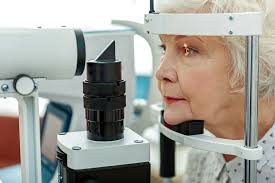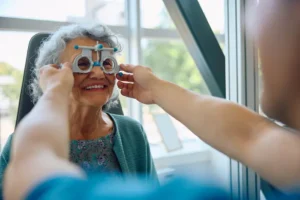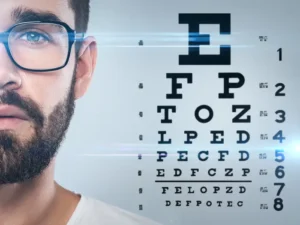Taking care of your eyes is about more than just maintaining good vision; it’s about safeguarding your overall health. Regular comprehensive eye exams, conducted by a qualified optometrist, are essential for detecting potential issues early and ensuring your eyes and vision remain in peak condition.
#### Why Optometry Eye Exams Matter
Periodic eye exams are a crucial component of preventive healthcare. Many eye conditions develop silently, without noticeable symptoms, making regular check-ups vital for early detection and treatment. A thorough eye examination helps prevent vision loss and identifies underlying health concerns that might otherwise go unnoticed.
#### What to Expect During Your Eye Exam
When you go for a comprehensive eye exam, your optometrist will customize the tests based on your specific symptoms and medical history. Here’s an overview of what typically happens during the exam:
1. **Patient History:** Your optometrist will inquire about any current eye or vision issues, your overall health, and any relevant family medical history. This includes details about medications, work environment, and lifestyle factors that could impact your eye health.
2. **Visual Acuity Test:** This test measures how clearly you can see. You’ll read from charts positioned at various distances, and your results will help determine if you need corrective lenses.
3. **Preliminary Tests:** These tests assess your depth perception, color vision, eye muscle function, peripheral vision, and pupil response to light, providing a comprehensive understanding of your visual capabilities.
4. **Keratometry/Topography:** These tests measure the curvature of your cornea, which is essential for fitting contact lenses correctly and diagnosing certain conditions.
5. **Refraction:** Refraction determines the exact lens prescription you need. Using a phoropter, your optometrist will present various lenses and ask for your feedback on clarity, refining your prescription.
6. **Eye Focusing, Teaming, and Movement Testing:** To ensure your eyes work together properly, your optometrist will evaluate how your eyes focus, move, and coordinate with each other.
7. **Eye Health Evaluation:** Advanced equipment is used to examine the internal and external structures of your eyes. Dilating eye drops may be applied to provide a more detailed view, helping to detect conditions like glaucoma, macular degeneration, or diabetic retinopathy.
8. **Supplemental Testing:** Based on initial findings, additional tests may be required to confirm or further investigate potential issues.
#### Recommended Frequency for Eye Exams
The frequency of eye exams depends on your age, risk factors, and overall eye health. Here’s a general guideline:
**For Pediatric Patients:**
– **Birth to 2 years:** At least once between 6 to 12 months of age.
– **Ages 3 to 5:** At least once between these ages.
– **Ages 6 to 17:** Before starting first grade and then annually.
**For Adults:**
– **Ages 18 to 39:** Every two years if asymptomatic and low risk; annually or as recommended if at risk.
– **Ages 40 to 64:** Every two years if asymptomatic and low risk; annually or as recommended if at risk.
– **Ages 65 and older:** Annually, regardless of risk level.
**At-Risk Individuals:**
Those with certain risk factors, such as a family history of eye disease, diabetes, or those who wear contact lenses, should have more frequent exams. Your optometrist will provide personalized recommendations based on your specific circumstances.
#### Vision Screening vs. Comprehensive Eye Exams
While vision screenings can be helpful, they are not a substitute for a full eye exam. Screenings often miss subtle issues and can create a false sense of security. Comprehensive eye exams provide a complete assessment of your eye health, ensuring that any problems are identified and treated promptly.
Vision screenings are typically limited to testing distance visual acuity, which doesn’t give a full picture of eye health. These screenings are often conducted by untrained personnel using inadequate equipment, which can lead to inaccurate results. On the other hand, comprehensive eye exams involve specialized equipment and procedures that only an optometrist or ophthalmologist can provide.
#### Why Regular Eye Exams Are Essential
Regular eye exams are not just for those with existing vision problems. Even if you have perfect vision, comprehensive exams are critical for the early detection of conditions that could affect your sight and overall health. Your optometrist will provide a diagnosis, discuss treatment options, and may refer you to a specialist if needed.
Don’t wait for symptoms to appear. Regular comprehensive eye exams are your best defense against vision loss and eye health issues. Schedule your appointment with a trusted optometrist to ensure your eyes remain healthy and your vision stays clear.




